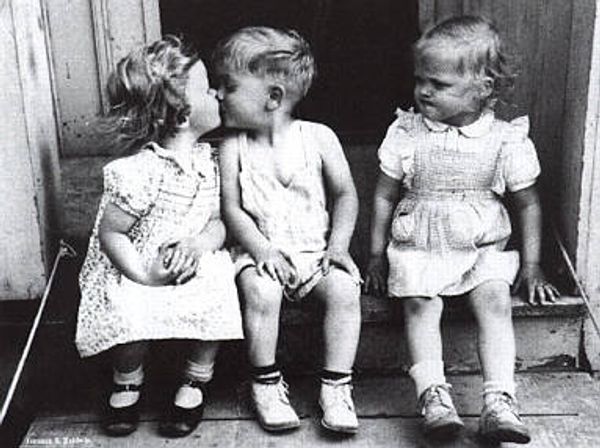I am lucky enough to have many excellent listeners in my life. When I have a problem to work through or exciting news to share, these are the people that I immediately want to discuss it with. They are the ones that are constantly available for me no matter what, make me feel heard and seem to always know exactly what to say. I’m sure as I describe these people a few of your own have popped up in your mind too.
These people are inspiring and constantly motivate me to reevaluate and fine tune my own listening skills. Being a good listener is an excellent skill to have in your interpersonal arsenal as well as in your professional life. Because listening skills are highly valued and appreciated, I have created this list of things that good listeners do. I’ve made this list for myself as a reminder of skills that need to be sharpened, practiced and refined. I hope that this list provides you with the same reminder in hopes that we can all be that person that people turn to when they want to be heard, understood and valued.
1. They are present.
A good listener makes sure that all of their attention can
be focused on the speaker. That means removing and eliminating all distractions.
They put their phone away and make sure that the space is somewhere free of
potential interruptions. This makes the speaker feel valued and that what they
have to say is important to you.
2. They are empathetic.
Empathy requires the listener to engage in perspective taking. You must put yourself in the other person’s shoes and try to understand why they are feeling the way they do. For more information about empathy, check out my article, "The Importance of Empathy".
3. They are open-minded.
Being a good listener requires you to leave all presumptions at the door. Formulating an opinion or preconceived notions impairs the way you listen to the speaker. You begin to selectively hear things that support these presumptions and end up misinterpreting what you hear. It is important that you keep an open mind and use empathy to see from their perspective.
4. They shift the focus away from themselves.
A good listener sets aside their own agenda and own emotions in order to properly focus on the speaker. This can sometimes be a difficult task but a statement that I have found particularly helpful reminds me that, “It’s not about being interesting, it’s about being interested in the other person”.
5. They are aware of their non verbal cues.
This is something that requires a lot of awareness and practice. Often, we are not conscious of what our body language and nonverbal cues might be communicating to others. However, non verbals can make or break a conversation. Nothing feels worse than talking to someone who is looking around the room while you are trying to talk to them. Maintain eye contact, make sure your arms are uncrossed and face your speaker in order to show them you are focused and dedicated to what they have to say.
6. They ask good questions.
Good listeners use questions to clarify what they are hearing. This shows that not only are they listening but they genuinely care about making sure they get the situation and feelings that you are attempting to communicate right. They also ask appropriate questions that might add more information. Some examples could be, “Why did they say that?” or “What happened after that?” These questions also encourage the speaker to continue and that you find what they have to say important.
7. They reflect back what they hear.
Another way to check for clarification is reflecting. A good listener will take what the speaker has said, put it into their own words and repeat it back to the speaker. This practice makes the speaker feel understood and evokes a message that communicates that they are understood. A good template for this is saying something like, “I hear what you are saying… (reflect here) and it makes sense why you feel the way you do because…”
8. They access the needs of the speaker.
Often when someone comes to us with a problem, we feel the need to provide advice. However, not every situation calls for words of wisdom. Some people simply seek someone they can verbalize their emotions and work through problems. It is important to either ask for what your speaker needs from you or read between the lines to identify and anticipate what they need most.
9. They maintain confidentiality.
A good listener is someone who can be trusted time and time again with information that is shared with them. They understand that the information shared has been entrusted to them and honors the other person’s privacy by keeping that information confidential.
10. They remember.
Good listeners are not only there for you in the moment. Good listeners remember exactly what you said, how you felt and then follow up with you. This is a simple yet significant gesture a good listener takes that exhibits their genuine care for the person.





















